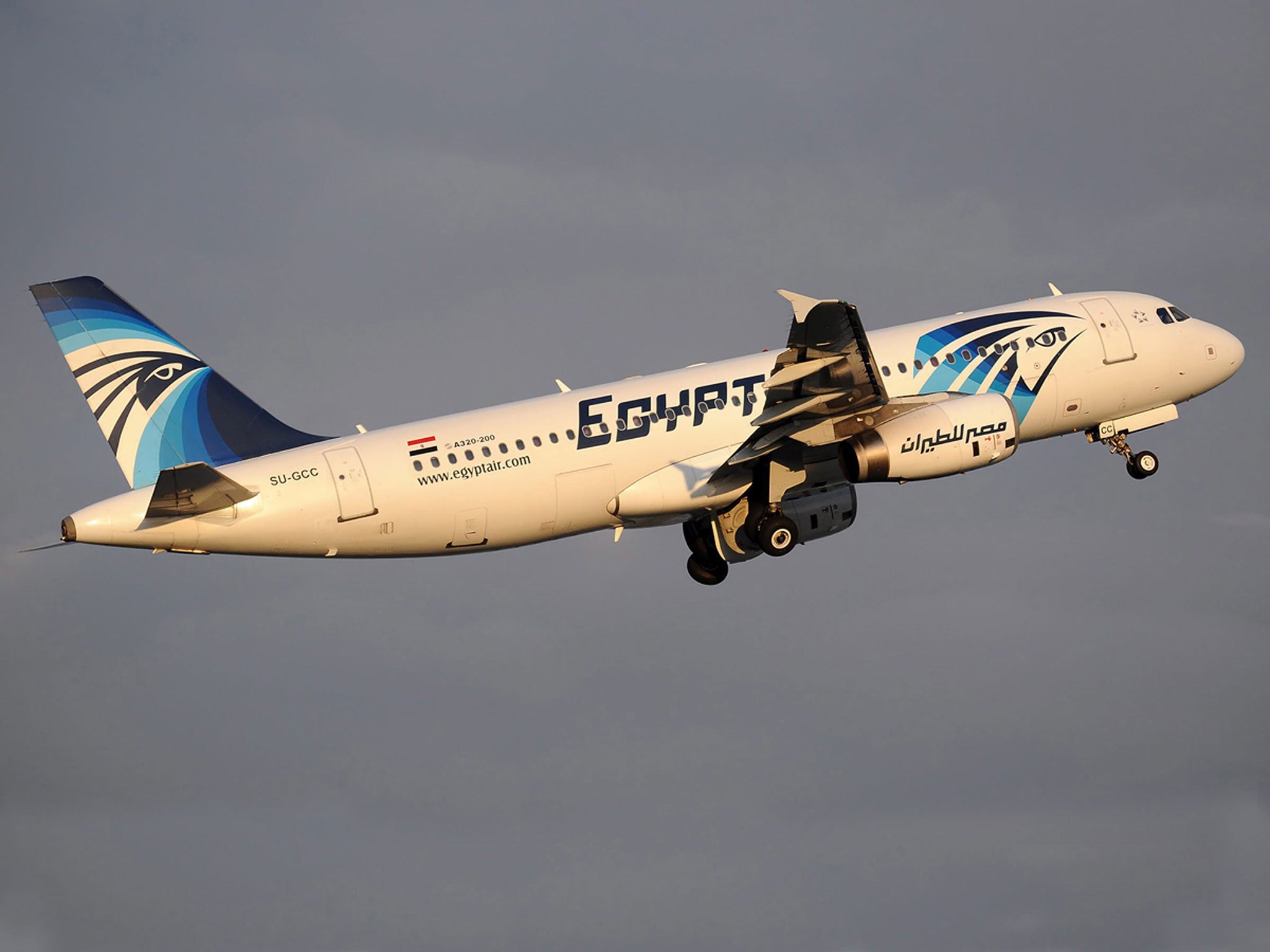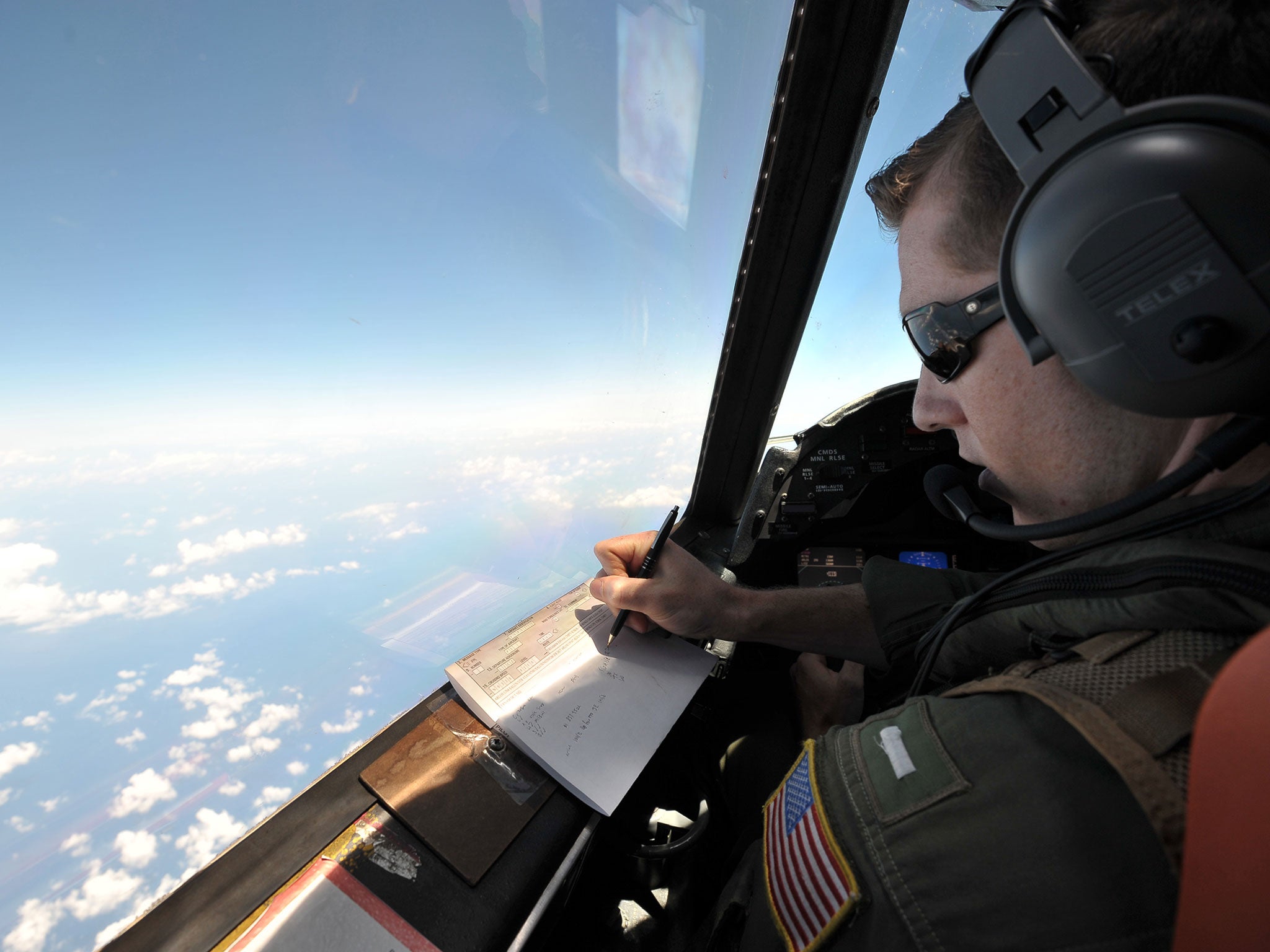EgyptAir crash: Egyptian investigators say no technical problems detected on flight MS804 before take-off
There have been conflicting reports of the plane's last recorded movements from Egyptian and Greek officials

Your support helps us to tell the story
From reproductive rights to climate change to Big Tech, The Independent is on the ground when the story is developing. Whether it's investigating the financials of Elon Musk's pro-Trump PAC or producing our latest documentary, 'The A Word', which shines a light on the American women fighting for reproductive rights, we know how important it is to parse out the facts from the messaging.
At such a critical moment in US history, we need reporters on the ground. Your donation allows us to keep sending journalists to speak to both sides of the story.
The Independent is trusted by Americans across the entire political spectrum. And unlike many other quality news outlets, we choose not to lock Americans out of our reporting and analysis with paywalls. We believe quality journalism should be available to everyone, paid for by those who can afford it.
Your support makes all the difference.Officials investigating the cause of the EgyptAir crash have said no technical problems were detected on the plane before it took off from Paris.
Members of the Egyptian investigation committee said the aircraft did not swerve before it disappeared from radar under a minute after entering Egyptian airspace.
There have been differing accounts of the Airbus A320’s final moments, with the Greek defence minister’s account of it abruptly turning to the left and then in a full circle as it plummeted contradicted by Egyptian officials.
Sources told the Reuters news agency that although the aircraft did not make contact with Egyptian air traffic control, they were able to see it on radar and observed no sudden turns before crashing into the Mediterranean Sea.
Searches continue in the area where it is believed to have gone down as analysts investigate wreckage and body parts recovered so far for any clues on what caused the disaster.
The Al-Ahram newspaper has published a technical log signed by EgyptAir flight 804’s pilot before take-off on Wednesday, saying 11 electronic messages were transmitted from starting at 11.09pm local time.
The first two messages indicated the engines were functional but the third, at 2.26am showed a rise in the temperature of the co-pilot's window.
The plane continued transmitting messages for the next three minutes before vanishing, Al-Ahram said.
“The difficulty is to connect these bits of information,” said John Cox, executive Safety Operating Systems, who co-authored a report on smoke and fire risks.
There are too few messages to fit a typical fire, which would normally trigger a cascade of error reports as multiple systems failed, he said, and too many of them to confirm a single significant explosion.
Previous records of the aircraft’s Acars system indicated that smoke may have been detected in a toilet and avionics bay, as well as reporting faults with the autopilot and flight control system.
Smoke alerts can also be triggered by condensation that occurs in the event of sudden decompression and there has been no confirmation of widespread speculation over a possible explosion or fire.
The cause of the disaster, which killed all 66 passengers and crew on board the flight on its journey from Paris to Cairo, remains unknown.
Egypt’s civil aviation minister claimed terrorism was a more likely explanation than equipment failure but so far no hard evidence has emerged and no group has claimed responsibility.
A forensic official who examined human remains recovered from near the crash site told the Associated Press that "there isn't even a whole body part, like an arm or a head", adding: “The logical explanation is that an explosion brought it down...but I cannot say what caused the blast.”

He was later quoted as saying that at least one piece of an arm had signs of burns, an indication that it might have “belonged to a passenger sitting next to the explosion”.
But the head of Egypt's forensics authority denied there was evidence of a blast.
“Everything published about this matter is completely false, and mere assumptions that did not come from the Forensics Authority,” Dr Hisham Abdel Hamid said in a statement quoted by Mena news agency.
EgyptAir said relatives of the victims had given DNA samples to forensics officials and investigators in the hope of identifying their loved ones.
Amjad Haqi, an Iraqi man whose mother Najla died in the disaster, said families were being kept in the dark and had not been formally told that any body parts had been recovered.
“All they are concerned about is to find the black box and the debris of the plane. That's their problem, not mine,” he said. “And then they come and talk to us about insurance and compensation.
“I don't care about compensation, all I care about is to find my mother and bury her.”

A representative of a group representing relatives of the French victims said many did not trust Egyptian authorities following the investigation of a 2004 plane crash that killed 132 French tourists flying from Sharm el-Sheikh.
The head of the Egyptian Civil Aviation Ministry’s investigative committee, Ayman al-Moqadem, told state media a preliminary report of the investigation will be available within a month.
Body parts, luggage and passengers' belongings have been recovered alongside wreckage from the aircraft during searches of the Mediterranean Sea.
But the location of the main body of the Airbus A230, complete with its “black boxes” and their vital data, remains unknown.
EgyptAir has said it will contract two foreign companies, one French and one Italian, to help search for the flight data recorders in an area roughly halfway between Egypt's coastal city of Alexandria and the Greek island of Crete.
A robotic submarine has already been deployed, along with a ship equipped with sonar, but it was unclear whether either of them can detect signals emitted by the flight recorders, lying in waters up to 10,000ft deep. The location beacons have a battery life of 30 days.
Join our commenting forum
Join thought-provoking conversations, follow other Independent readers and see their replies
Comments